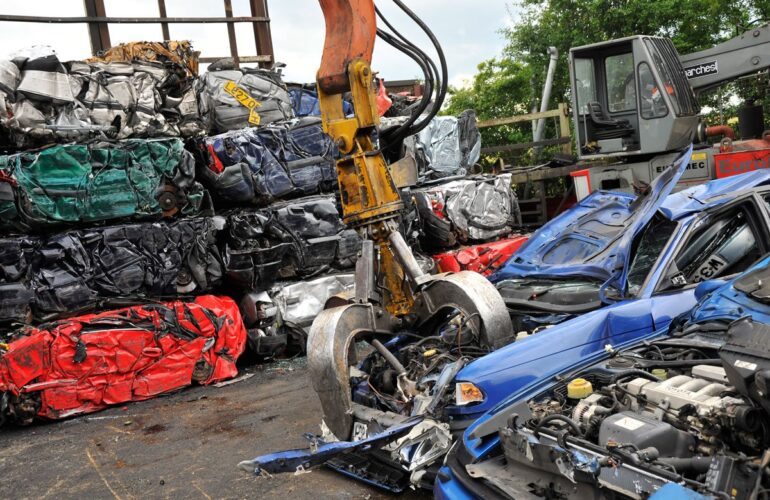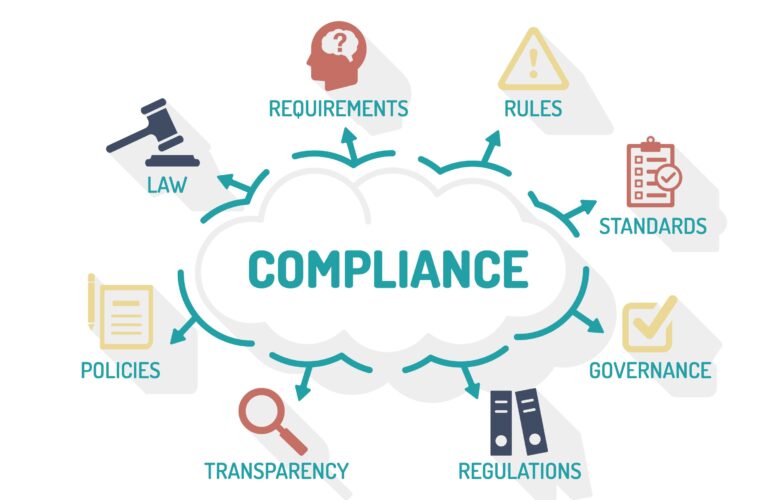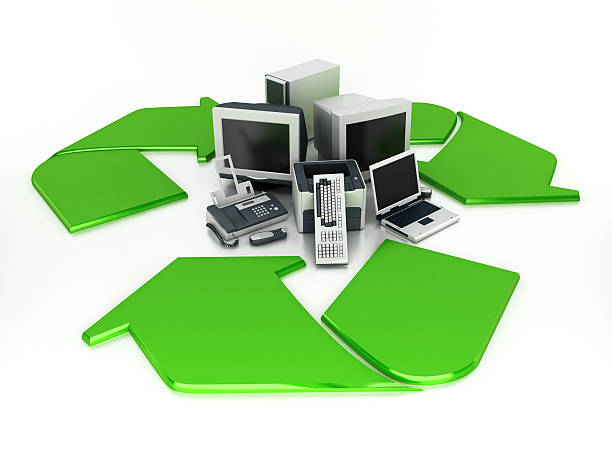Make your business agreeable with the E-waste Management Rules with master help from Enviroxperts.
Package Inclusions :-
Outline of E-Waste (Management) Rules, 2016
E-Waste (Management) Rules were ordered in Indiaon the first of October 2016. The guidelines set out the obligations of partners like the maker, maker, assortment focuses, vendors, refurbishers, buyers or mass shoppers, dismantlers, recyclers, state government and climate organizations. The standards additionally characterize different terms and present crucial changes that were absent from the E-waste Handling Rules of 2011 The vital obligations of theCentral Pollution Control Board (CPCB), State Pollution Control Board (SPCB) and Pollution Control Committee(PCC) have also been defined.
The E-waste (Management) Rules, 2016, have been refreshed occasionally. The assortment and reusing targets were likewise presented for the makers/shippers and brand proprietors (PIBOs)through the correction in 2018. These rules, along with the Hazardous Waste (Management) Rules, 2016, additionally center around the treatment, stockpiling and removal of unsafe waste. Furthermore, the principles have likewise explained the post-consistence for substances associated with the treatment of e-squander.
Applicability of E-waste (Management) Rules, 2016
Contrasted with the E-waste (Handling) Rules of 2011 that covered just Electrical and Electronic Equipment (EEE) in Timetable I, new guidelines acquainted in 2016 stretch out with parts, consumables, extras and portions of EEE and gear. The reasonable ramifications was that the majority of E-waste contains parts, consumables, extras and portions of EEE, which were not getting tended to in past standards involving the extent of the channelisation of unsafe E-waste to the casual area.
The E-waste (Management) Rules, 2016, focussed on the logical administration of specific electronic things like Compact Fluorescent Lamp (CFL) and other mercury-containing lights that contain unsafe and poisonous parts. This considered the absence of guideline for overseeing CFL and other mercury-containing lights. CFL has been remembered for Timetable I of the E-waste Management Rules.
The Exemption Provided under E-Waste (Management) Rules, 2016
The exception to Extended Producer Responsibility (EPR) commitment was given to the miniature and little industry area as characterized in Micro Small and Medium Enterprises (MSME)Developmental Act, 2006. This went on in the 2016 principles. Nonetheless, little ventures, which are alluded to as one of the significant wellsprings of E-waste, have been remembered for the guidelines for obligation as makers without troubling them with EPR obligation as appropriate to makers.
Collection Mechanism under E-waste (Management) Rules, 2016
Prior, the assortment place were set up by the maker or any individual, office, or relationship to gather E-waste . After the E-waste (The board) Rules, 2016, the assortment was made the maker’s liability. They can now set up an assortment place or point or orchestrate a reclaim or repurchase system. Additionally, in the 2011 adaptation of the standards, separate authorisation from SPCBs for setting up such assortment places was essential. However, presently, the EPR plan of the maker demonstrates that assortment implies no different authorisation.
Extended Producer Responsibility (EPR) under E-Waste (Management) Rules, 2016
Prior, the makers were expected to acquire Authorisation from SPCB/PCCs for executing their EPR. After the E-Waste Management Rules of 2016 happened, a solitary EPR Authorisation through CPCBwas presented. EPR not just figures out how to make the makers answerable for the whole life pattern of the item, yet it additionally underlines the assortment and reusing focuses for them. The jobs and obligations of the Producer Responsibility Organisation (PRO) have likewise been referenced in the principles to guarantee dish India execution of EPR for EEE items presented by PIBOs.
Authorisation and licenses that are obligatory under the E-waste Management Rules are consequently fundamental for any business connected with assembling, deal, import, reusing and removal of end-of-life EEE. Acquiring all licenses can be tedious and feverish for business visionaries who need to zero in on developing their organizations. Such organizations typically need master help and direction to satisfy their permitting and Authorisation prerequisites and EPR commitments.
Licences and documents needed under the E-waste (Management) Rules, 2016
Business Registration:Registering an E-waste Management Business Will Give the Unit the Legal Identity and Obtain further Licences and Authorisation Needed.
Documents required for company registration are-
Consent NOC:Assent No Objection Certificate (NOC) is given to modern offices as indicated by the CPCB’s rundown. As the rundown is separated into three categories,i.e. red, yellow, green and white, the candidate should guarantee which variety class their unit falls under and apply as needs be. In spite of the fact that assent NOC has been made required under the Air and Water Act, it should be noticed that the partners overseeing electronic waste under the E-Waste (Management) Rules, 2016 will likewise need to keep the arrangements of the Environment Protection Act, Air Act and the Water Act.
Documents Required for the NOC Include
Authorisation to Store, Dismantle or Refurbish Under the E-waste (Management) Rules, 2016
The concerned SPCBs grant Authorisation to keep e-squander or dangerous parts for destroying. Such Authorisation is given to Treatment Storage and Disposal Facilities (TSDFs). Essentially, destroying and revamping exercises need earlier Authorisation from concerned SPCBs/PCCs.
Documents required in this regard are –
PRO Authorisation
Producer Responsibility Organisation (PRO is a specific element that can be recruited to satisfy EPR commitments. The obligations and necessities for Genius Authorisation through CPCB have been referenced in E-squander (The board) Rules, 2016.
Documents required for PRO Authorisation
A Waste Processor That Needs To Be Enrolled as Need Might Arise to Present the Accompanying Reports to CPCB Alongside the Application –
EPR Authorisation
Extended Producer Responsibility (EPR)Authorisation is required by any element that brings EEE into the market and gains a benefit consequently. Accordingly, aside from the PIBOs referenced over, a shipper or refurbisher bringing in utilized EEE will likewise require EPR Authorisation from CPCB and authorization from the Service of Climate, Timberland and Environment Change(MoEF&CC).
The Main Documents Required to Obtain EPR Authorisation for E-Waste Management Are as Follows:
REGISTRATION PROCESS SECTION
| Documentation and application fee | Document scrutiny by the authorities | Issuance of EPR authorisation |
| The candidate should present a structure intended for the sort of authorisation and the guideline however with all necessary reports to the natural organization (SPCB/PCC or CPCB). This should be joined by a complete EPR Plan for the assortment, destroying or Recycling of the E-waste likewise. | The CPCB or SPCB endorses or dismisses the application in light of the announcement in the structure. Whenever supported, the candidate should get their site examined by specialists. In the event of fragmented applications or any issues, the candidate will be given a hailed time span to determine such issues. | CPCB or SPCB/PCC approves or allows the office to perform inside a period bound way. If there should be an occurrence of correction in rules, an overhauled NOC is given. |
Scope of E-waste Management Businesses
Electronic waste or E-waste has been quite possibly of the quickest developing waste stream in India somewhat recently. As this E-waste is a mind boggling structure of in excess of 1000 components, dealing with the finish of-life squander turns out to be very fundamental. Comprehensively, the waste comprises of ferrous and nonferrous metals, plastics, wood and compressed wood, printed circuit sheets, cement and pottery, elastic and different things. The inappropriate administration of these wastes creates complex worries along different lines, with unique notice of the climate and wellbeing.
Changes Brought by the E-waste (Management) Rules, 2016
The E-waste, when left unregulated, delivered unsafe waste and leachates that were debasing soil and, thus influencing the groundwater table. It drove down to the natural pecking order, influencing creatures and people at various levels. Furthermore, the smoke in the wake of consuming E-waste causes air contamination. The E-waste (The board and Taking care of) Rules of 2011 were made to completely manage this. E-waste (The board) Rules, 2016, later supplanted it. For example, aside from makers, dismantlers and recyclers of e-squander, these principles were extended to the producers, vendors, refurbishers and Aces. The progressions to these principles meant to resolve the issue of spillage of e-squander into the casual area at all phases of channelisation.
How could Enviroexperts help you?
| Start to Finish Help | Cost-Effective and Customised Plans | Best-in-class Client Support |
| We are the one-stop answer for all your lawful prerequisites to begin a business in E-waste management. Our group contains specialists from assorted fields who aid the documentation and procedural customs of beginning any business in this portion. | We give comprehensive help to all your lawful and procedural prerequisites emerging through the E-waste Management Rules, 2016. 2016. The bundles offered are tweaked to the particular requirements of the business and that too at sensible costs. | We guarantee an exact, consistent, positive experience for our clients all through the excursion with our long periods of involvement with business consistence and related legalities. |




